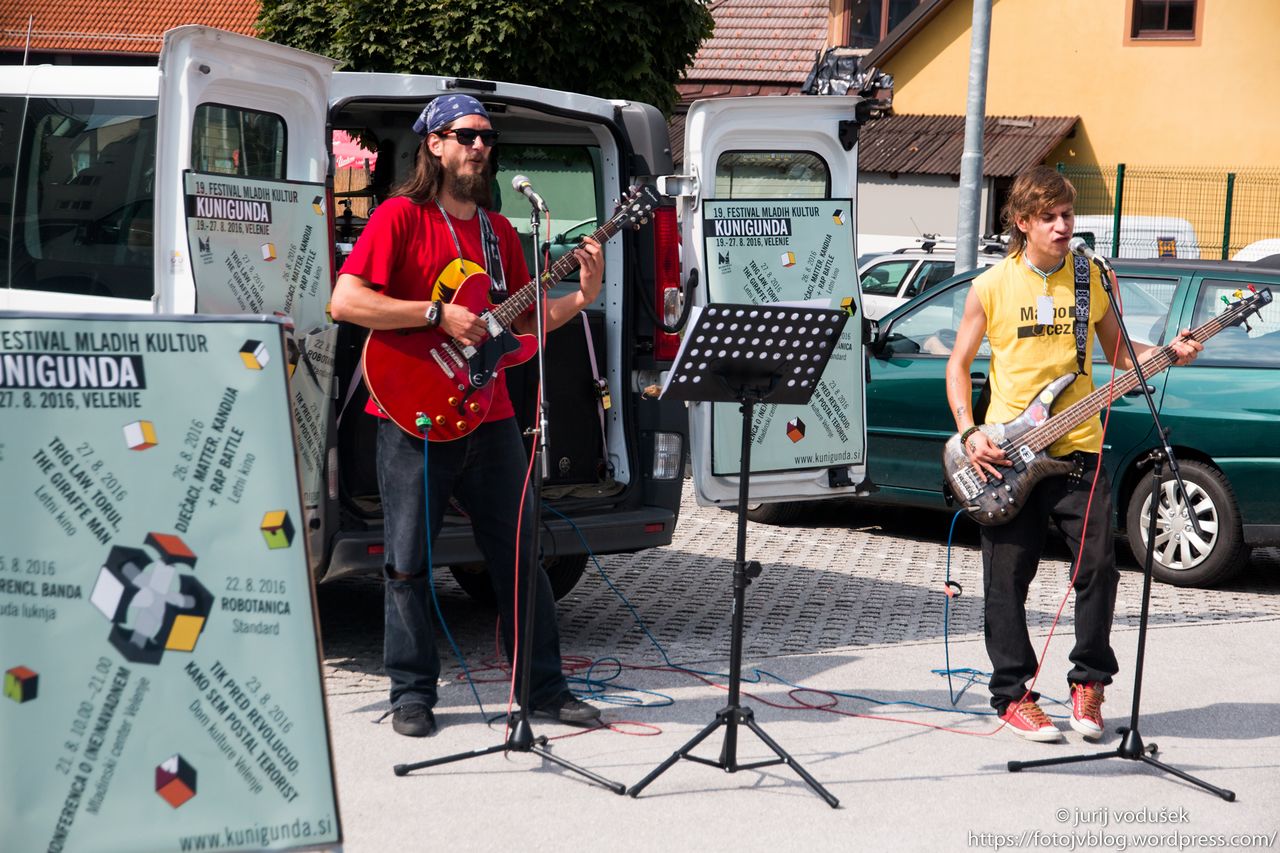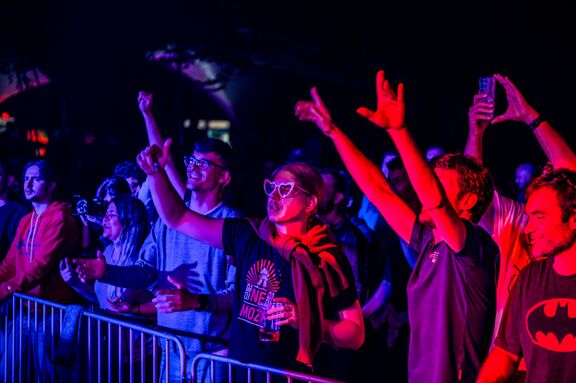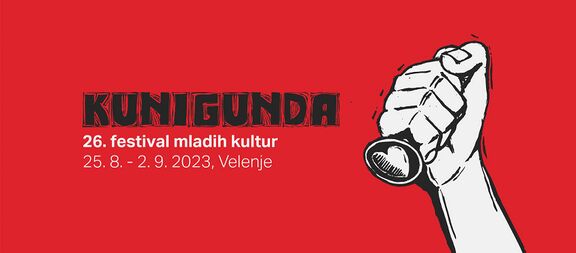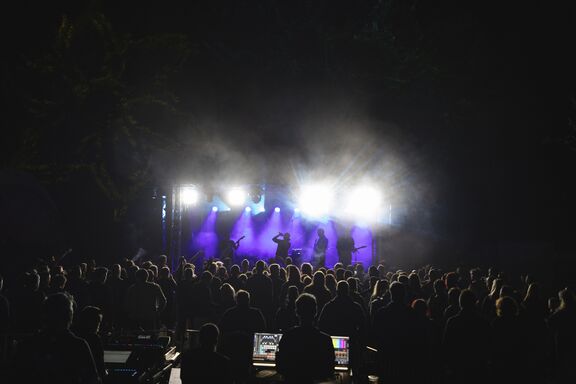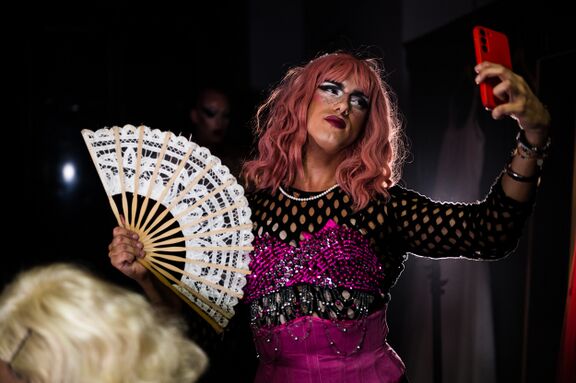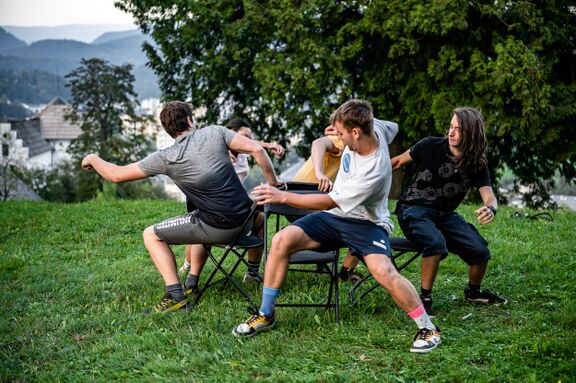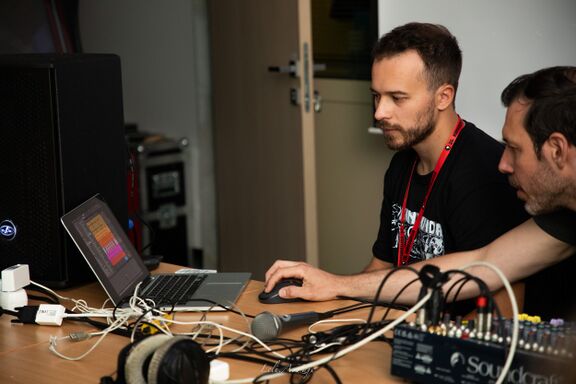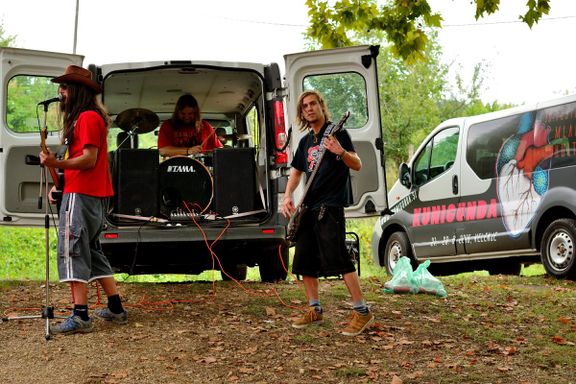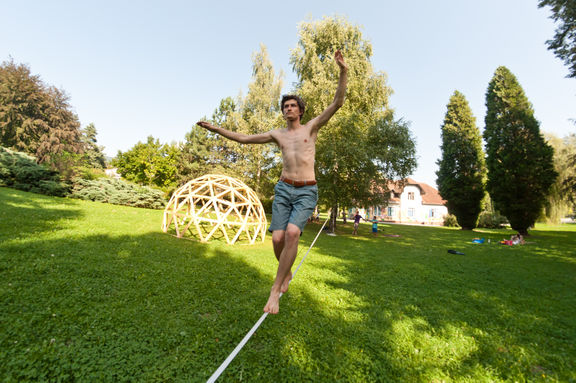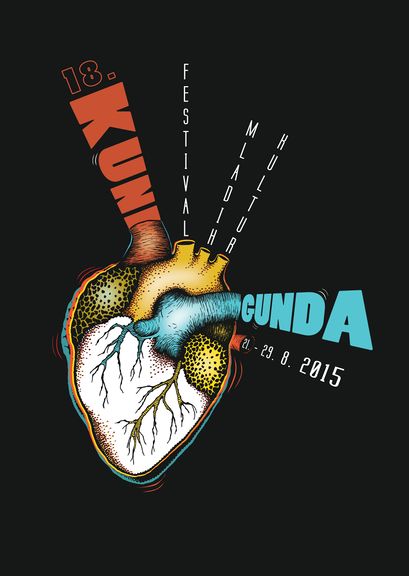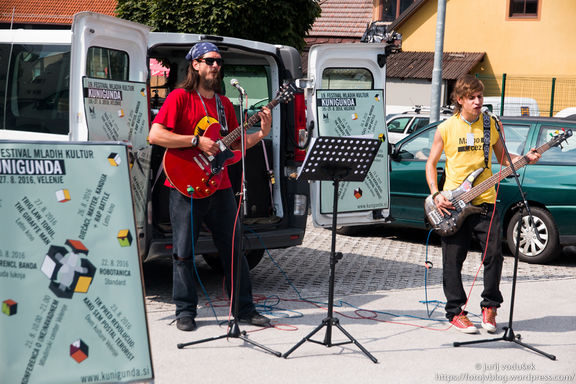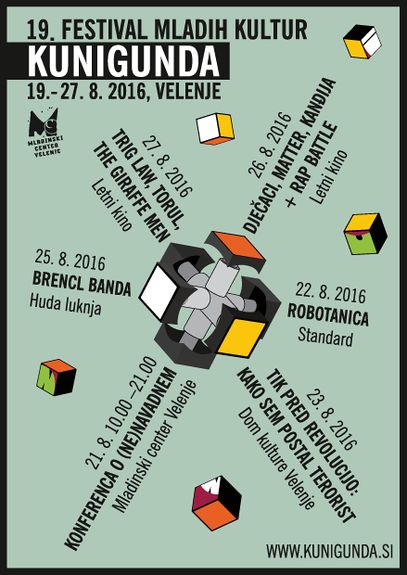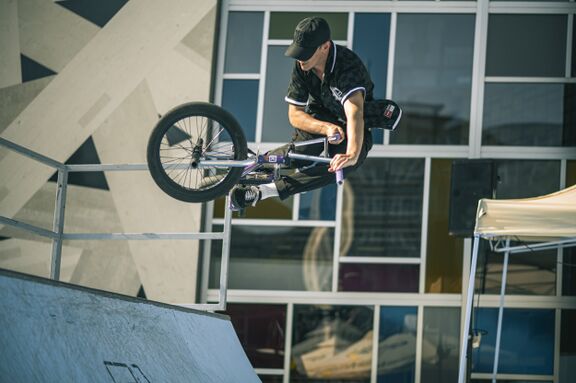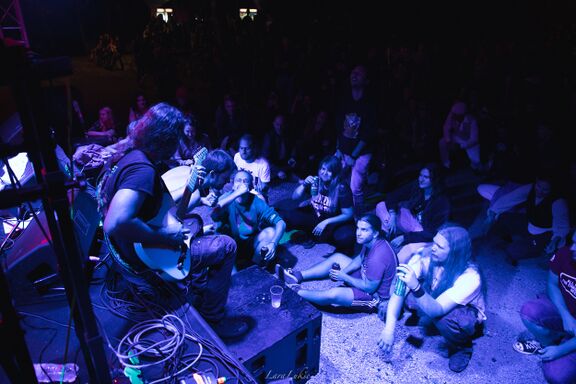Difference between revisions of "Kunigunda Festival of Young Cultures"
| Line 58: | Line 58: | ||
The festival's name has its origins in local folklore story about Kunigunda, a beautiful young girl who supposedly lived in Velenje Castle. She was a castle maiden, accused of witchcraft and thrown into the castle well to die. There is a rumour that she has been haunting the castle hallways ever since. | The festival's name has its origins in local folklore story about Kunigunda, a beautiful young girl who supposedly lived in Velenje Castle. She was a castle maiden, accused of witchcraft and thrown into the castle well to die. There is a rumour that she has been haunting the castle hallways ever since. | ||
The festival honours the innocent girl with a celebration of young people’s culture, since they are also often mistakenly accused of not being cultural enough. Like Kunigunda, alternative culture is searching for its place under the sun. Kunigunda gives its visitors a chance to get to know it and enjoy it. | The festival honours the innocent girl with a celebration of young people’s culture, since they are also often mistakenly accused of not being cultural enough. Like Kunigunda, alternative culture is searching for its place under the sun. Kunigunda gives its visitors a chance to get to know it and enjoy it. | ||
| + | |||
| + | |||
| + | {{wide image|Kunigunda 2015 van concert.JPG}} | ||
==Programme== | ==Programme== | ||
Revision as of 23:44, 19 January 2020
Background
The festival was launched by Velenje Youth Centre (MC Velenje) in cooperation with the local student club, Šaleški študentski klub. Its venues are many and mainly open-air, yet can also include the Velenje Castle, the Velenje Youth Centre (MC Velenje), and the Club eMCe plac.
The festival's name has its origins in local folklore story about Kunigunda, a beautiful young girl who supposedly lived in Velenje Castle. She was a castle maiden, accused of witchcraft and thrown into the castle well to die. There is a rumour that she has been haunting the castle hallways ever since. The festival honours the innocent girl with a celebration of young people’s culture, since they are also often mistakenly accused of not being cultural enough. Like Kunigunda, alternative culture is searching for its place under the sun. Kunigunda gives its visitors a chance to get to know it and enjoy it.
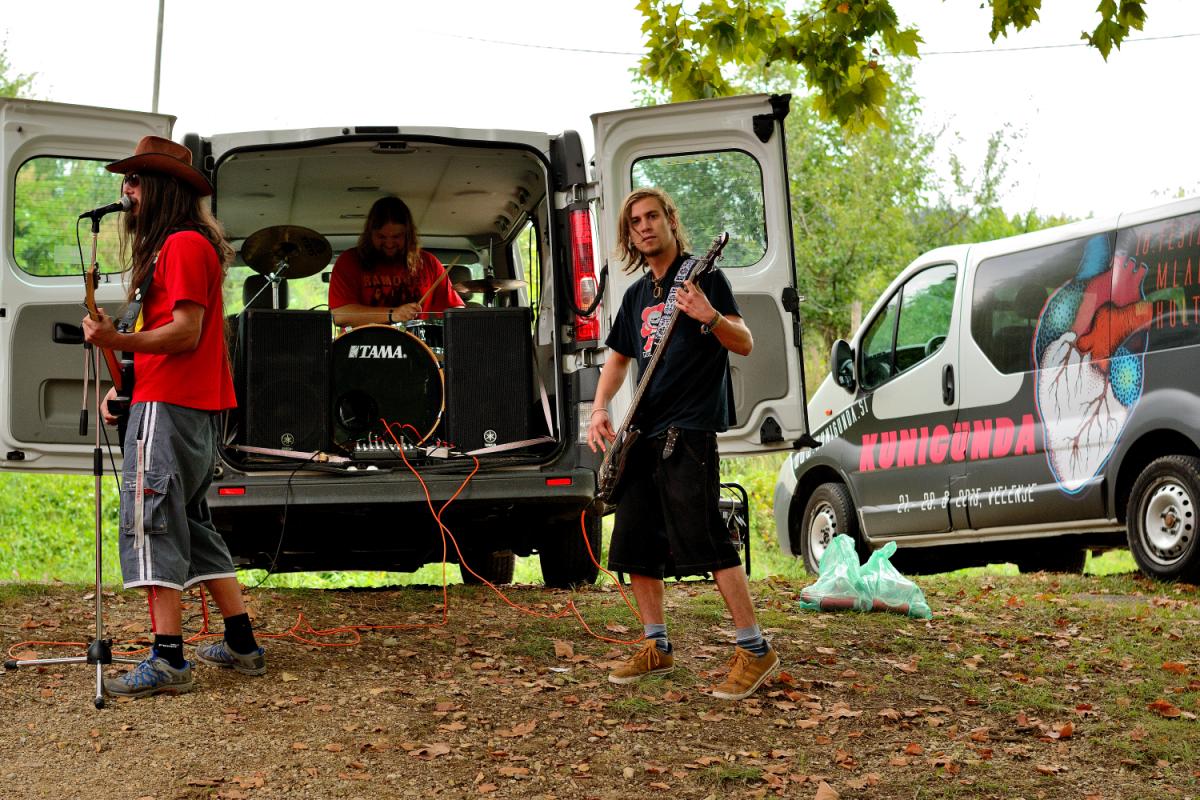
Programme
The programme is conceptually wide and diverse, comprising music, visual arts, contemporary dance, theatre, puppetry, sculptural installations, documentary film and video screenings, literary evenings, new media art events, lectures, and art auctions. The events are spread throughout the city, from its parks and streets (and even its lake) to the main stage in the city centre, the local skate park and the Pekarna exhibitions grounds (a venue created at the site of an abandoned industrial building in the course of a past festival edition).
There are also other, more temporary interventions into urban space like setting up artist residencies at floating dwellings on the local lake and transforming one of the city parks into a creative polygon. The streets also hold theatre shows and arts performances (for example, Pocestnica by KUD Ljud), slack-line and roller-blade gatherings, photography exhibitions, and so on.
The festival also holds lectures on topics like the American poet Walt Whitman, appearances of artists like Dragan Živadinov, workshops on sound sculpting and other arts performances and installations that are rather atypical for this type of a festival.
Kunigunda has produced also projects critical to society, like Experiment: Tito’s Velenje, The Wedding: a celebration of love, Kunigudra and founding of the Autonomous Republic of Kunigunda (ARK). Kunigunda is constantly evolving, reconstructing and reconfiguring itself.
Music
Music-wise, there is combination of well-known local and foreign musicians like Lombego Surfers (US), Let 3 (HR), Kultur Shock (US), Disciplin A Kitschme (RS), Senser (UK) Bambi Molesters (HR), Damir Avdić (BA), Kiril Džajkovski (MK), Terrafolk, Torul, Demolition Group, Srečna mladina, Noctiferia, The Stroj, Matter, etc. This relatively rock-oriented programme is accompanied by many upcoming and fresh musicians of diverse musical expressions (jazz, electronica, reggae, etc.), coupled with a very strong hip hop focus with artists like General Woo (HR), Elemental (HR), Kiša metaka (HR), High 5 (HR) and even a national competition in beat boxing.
See also
External links
- Kunigunda Festival website (in Slovenian)



